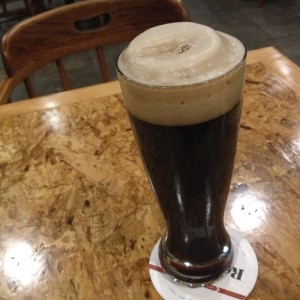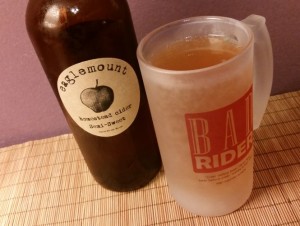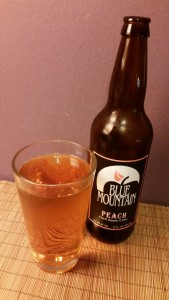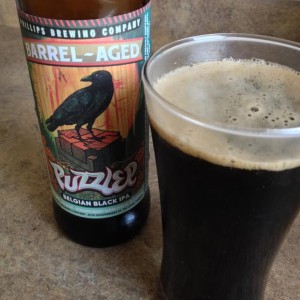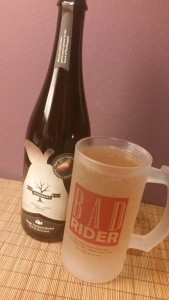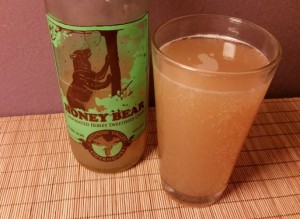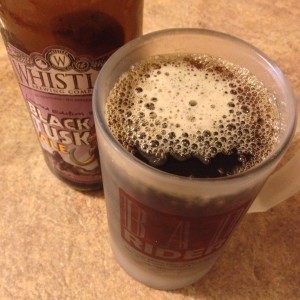
Wow, I really short-poured myself on this mug, didn’t I?
The Specs: Driftwood Brewery (Victoria, B.C.), Fat Tug IPA
7 per cent ABV, 650mL, regular series
Turns out, there’s a down side to becoming less of a dumb baby beer fan running around the liquor store grabbing bottles at random. At some point, it becomes impossible to ignore The Consensus — you know, those opinions of more seasoned craft drinkers repeated in so many Untappd reviews, blog posts, and friendly conversations that one can’t help but accept them as gospel.
And when it comes to Fat Tug, The Consensus is pretty darn devoted. Chances are, if you’re a seasoned beer drinker who likes IPAs, you already have an opinion on this one, and it’s probably fairly positive
I’ve had it described to me as B.C.’s best IPA, and a cursory Google turns up rapt reviews from across the country.
In the face of such praise I did the only natural thing — develop an intense paranoia that I would hate this beer.
Longtime blog readers already know about my deep-seated hops ambivalence. That I’m even drinking and sort of enjoying some IPAs these days is a shock, after years of thinking your average India Pale tasted like a pine cone, and not in a good way.
Fat Tug pours a pretty gold and smells mostly of grapefruit off the top. And, after a couple sips, I breathed a sigh of relief, because this beer does exactly what it promises to.
There’s a very juicy, grapefruit start, which slowly levels off into a lingering bitterness. Driftwood claims mango and melon flavours as well, but it’s really grapefruit’s show. I appreciate how controlled the bitterness is here, never overwhelming your palate to the point where you miss the upfront flavours.
It’s an IPA, but it’s an IPA I might conceivably drink again, under the right circumstances. For this style, that’s a victory.
(I’ll also note for the record I like this stuff a heck of a lot more than another of Driftwood’s hoppy offerings, New Growth Pale Ale, which I attempted to review back in January but just couldn’t work up the momentum to write about. Objectively it’s a pretty good beer, but I shouldn’t have to talk myself into appreciating something, you know?)
